
In the dynamic and ever-evolving world of basketball, coaching goes beyond just teaching the fundamentals of the game. It encompasses a broad spectrum of skills, strategies, and philosophies that are crucial for the development and success of a team. Recognizing this, a variety of basketball coaching resources have been developed to assist coaches at all levels—from beginners to seasoned professionals—in enhancing their understanding and execution of the game.
These basketball coaching resources cover a wide range of topics, each designed to address different aspects of coaching and team management. Here’s a closer look at what you can expect from these invaluable tools:
1. Technical Skills Development: Resources in this category focus on the core skills every player needs to master, such as shooting, dribbling, passing, and defense. Coaches can find drills, exercises, and tips for teaching these fundamentals effectively, ensuring their players have a strong foundation to build upon.
2. Tactical Strategies: Understanding and implementing game strategies is vital for any successful basketball team. These resources provide insights into offensive and defensive tactics, helping coaches develop game plans that leverage their team’s strengths and exploit opponents’ weaknesses.
3. Physical Conditioning: Basketball is a physically demanding sport, requiring players to be in peak condition. Coaching resources dedicated to physical conditioning offer guidance on creating fitness programs that improve strength, endurance, agility, and speed, while also emphasizing injury prevention.
4. Mental Toughness and Team Building: The mental aspect of the game is just as important as the physical. Resources that focus on mental toughness help coaches foster resilience, confidence, and focus in their players. Additionally, team-building activities and strategies can enhance team chemistry and cooperation, both on and off the court.
5. Practice Planning and Game Management: Effective practice sessions and game management are key responsibilities of any coach. With the right resources, coaches can learn how to plan efficient practices, make real-time decisions during games, and adjust strategies as needed to secure wins.
6. Youth Development: For coaches working with younger players, resources tailored to youth development are crucial. These materials often include age-appropriate drills, tips for teaching the basics in an engaging way, and advice on nurturing a love for the game while promoting sportsmanship and teamwork.
7. Professional Growth and Networking: Lastly, resources designed for a coach’s professional development—such as coaching clinics, webinars, and networking opportunities—can be invaluable. They allow coaches to stay updated on the latest trends, techniques, and technologies in basketball coaching, fostering continuous growth and improvement.
By tapping into these critical resources, basketball coaches can equip themselves with the knowledge and tools necessary to excel in their roles. Whether it’s through improving player performance, crafting winning strategies, or fostering a positive and cohesive team environment, these resources serve as a comprehensive guide for anyone looking to make a significant impact in the world of basketball coaching.
Timeouts and Bench Procedure in Basketball
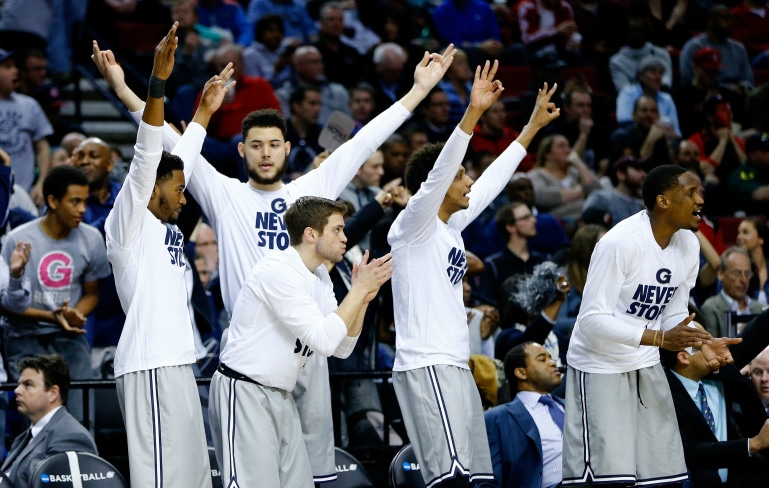
Coach Kevin Sutton contributed to this portion of the article.
Bench Procedures in Basketball
The bench must be totally engaged and into the game (mentally and physically). Lack of engagement is a clear indicator to the coach that the player is more concerned with themselves than the team. Being engaged sends a message to the coaches and the rest of the team that a player is ready to play and is invested in the game.
The bench must cheer for their teammates and not sit as spectators. The cheering must be positive and empowering. It must be the type of cheering you would want to hear when you are on the floor.
The players on the bench should stand and extend their hand to the teammate that is coming out of the game. This is a form of solidarity and a demonstration of TEAMWORK!
The player exiting the game must “high five” with each member on the bench before picking up their water at the end of the bench from the manager. After that, they should return to the available seat next to an assistant coach to receive feedback on their performance.
Players should never be allowed to go to the end of the bench to sit after coming out of the game. This will only allow the player to disengage from the team and think of themselves. The player will invariably start to ask themselves and others questions as to why he got taken out of the game. Also, by going to the end of the bench, the assistant coaches cannot give them the proper feedback that can be helpful to the player and, more importantly, the team.
Players need to be vocal, especially when the team’s defense is in front of their bench. This is a great way to get engaged in the game and have a positive impact. Communicating from the bench is equally as valuable as the communication taking place on the court, provided that the communication is the same, and it benefits the team.
When a timeout is called, the players on the bench should sprint out to meet the players who are in the game. However, do not cross half court because this is a rule violation. Whether the situation is good or bad, the team must remain a team and handle everything as a single unit. Furthermore, it sends a message to your opponents that they are playing a TEAM and not a collection of individuals.
Managing Timeouts in Basketball
Another aspect of the game of basketball that often gets overlooked, and is often mismanaged, is timeouts. You can easily identify the most successful basketball teams by the way that they use their timeouts. Their structure and organization allow for the maximum amount of necessary information to be disseminated during the timeout. As soon as the ball is put into play, you will know right away how much of the information was retained. Winning teams can execute at a high level after timeouts (ATO).
Each team is given the same number of timeouts per game. However, how they are used and when they are used often has a big impact on the outcome of the game. I love the rules that the NBA and FIBA use regarding timeouts in their games. Both of these leagues place a high value on timeouts, making their respective games more interesting from a tactical standpoint.
There are two types of timeouts in the College and High School game; the 30-second timeout and the Full timeout. Each must be handled differently by the coach so that the timeout is maximized positively and not wasted.
30 Second Timeout
For a 30 second timeout in basketball, the players in the game must remain standing up and on the court, and the players not in the game must remain off the court. It is imperative that the players in the game SPRINT to the bench area just inside the court. A great way to organize your basketball players is to have them stand in front of the coach by position from left to right (players right to left) 1-5 (pt. g, g, sf, pf & c). By lining up this way, the coach does not have to look around for each player. He can talk freely because he knows exactly where each position/player is in the huddle. This will help to maximize the 30-second timeout and will better help each player to understand what their responsibilities are.
Full Timeout/TV Timeout
Because these timeouts are longer, they are going to look a little different. Here is a great way to set up your full timeouts.
The managers will hand out the towels and water bottles to the players. While this is happening, the coaches are meeting away from the team to discuss strategy. When the head coach is ready to address the team, all water bottles and towels are taken away by the managers so that the players can give the coach their full attention. The players will sit in front of the coaches from left to the right 1-5 again.
Also, every coach should have a role during the timeout. One coach should know the foul and timeout situation. Another coach should watch for changes in the opponent’s line ups and ready the team for potential new matchups. The coach responsible for that game’s scouting report should assist the head coach the most during timeouts because they are the most knowledgeable of the other team. The head manager’s role is to help get the team out of the huddle after the first horn sounds.
Timeouts and Bench Procedure in Basketball Conclusion
Winning is hard! Consistently winning is even harder. The basketball teams that consistently win have a bench procedure and can effectively manage timeouts during the course of a game. They understand the impact that both aspects have on the game. You can clearly see the difference between a winning basketball team’s bench and that of a losing team. Just watch how engaged their bench is during the game, and look at how the players coming off the bench perform.
Finally, look how well they execute after timeouts when they need a big buck or must come up with a game-saving stop. Winning basketball teams can get the most out of their bench and their timeouts, and it is one of the key factors that allows them to win close games.
Developing the New Players in Your Basketball Program

Chris Capko contributed to this portion of the article.
Every year, at every level, every basketball team in the country is welcoming some new young players into their program. Whether your team will rely heavily on the freshman or not, freshman will impact every basketball program in the country. Even if they’re not playing in the games, they impact your team’s development by their practice habits and how hard they are working. For teams where freshmen will impact your success, they have to develop rapidly to help fill the role that your team needs to maximize your season. So how can you expedite their growth?
Basketball Terminology Sheet
There is a litany of things all freshmen must adapt to, but they are also learning a new language. Your program’s terminology! They are comfortable with the basics terms, but every program has its own language. I have found it useful to keep a running sheet of your basketball program’s terminology and make sure all of your players, especially your freshman, get a copy and memorize it.
Individual Basketball Player Development
Spend as much time with your kids working on the weaker aspects of their game. There is more than enough time in a day for a player to spend with a coach to do different basketball drills and work on their game. As a basketball coach, motivate your players to work on their craft. It will benefit both of you in the long term.
Watching Video/Film
No matter how many minutes an individual player plays, they can always watch film to get better. Teach them the details of your team defense and show them where they can improve on. Many kids only want to watch themselves on film even though they can learn from everyone else.
Weight Room and Diet
Most high school basketball players have never committed to a workout plan. Working on your body is as important as what you do to develop on the court. Players have seen their games take off because of the work that they have done in the weight room.
Developing Relationships With Your Basketball Players
I believe that the more your players know you love them, the harder you can coach them. Spend time with your kids away from basketball. Get to know what’s going on in their personal lives. Young basketball players allowing themselves to be coached will expedite their growth as much as any.
Developing the New Players in Your Basketball Program
Every basketball program is relying on these young players to some extent. Help these kids grow, and it may help your team maximize its potential faster than any other component of your basketball program.
Building Trust in Your Basketball Program
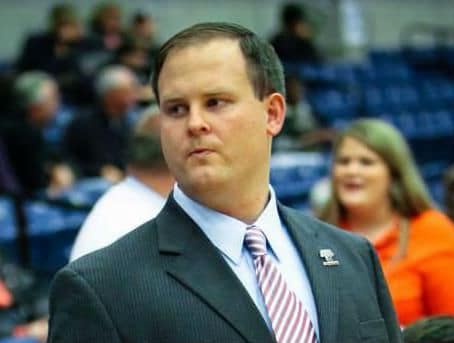
Tigh Compton contributed to this portion of the article.
The Importance of Trust in Your Basketball Program
There may not be a more crucial ingredient for success than TRUST. In basketball, trust has to be a two-way street. Basketball players and coaches alike must trust each other on several different levels if we want to experience any long-term success. Trust must be present amongst teammates, coaches, and all support staff. Let us take a look at both the player and the coach’s roles when it comes to developing trust.
Players must trust that the coach has their best interest in mind at all times. Players who buy into a “win first” mentality must know that the coach is always thinking of what is best for the team and their chances of success.
When players trust in their coach, you begin to get more energy, effort, and focus in practice and in games. When basketball players trust their teammates, you begin to see the teamwork and execution necessary to help the team reach its full potential.
Earning Your Basketball Player’s Trust
As a basketball coach, how do you earn your players’ trust? Some players are tougher to win over than others, but in the end, it is all about the relationships you can build with them. Players do not care how much you know until they know how much you care!
By showing your players respect, listening to them and communicating effectively, always being honest and following through with your promises, etc., you are showing your basketball team how much you care about developing a genuine relationship with them. Show your team that you care about them no matter what their game averages are, and you are on your way to reaching the level of trust between player and coach that is necessary for your team to reach its full potential.
Developing Trust Between Basketball Players
In my opinion, the hardest trust to develop is trust between teammates. It is our job as basketball coaches to find ways to develop this. By creating a culture of trust from top to bottom in your program, you invite every member of the team to “buy-in” to a team-first mentality.
When the players develop a team-first mentality, the sky becomes the limit. A win-at-all-costs mentality is all about what is on the front of the jersey, not what is on the back. It takes a tremendous amount of leadership and sacrifice from everyone in the program to reach this mentality.
Player Leadership Roles
Once your basketball players trust one another, the leaders on your team become very important. It is their responsibility to help the coaching staff manage all of the different personalities and egos that are part of your program. With trust comes responsibility and expectation.
Players must expect and accept the responsibility placed on them by their coaches to help create a team-first culture. Pat Riley said it best when he said, “There are only two options regarding commitment. You are either in or out. There is no in-between.” Leaders must take personal ownership of their team.
Building Trust in Your Basketball Program Conclusion
Basketball teams that reach their full potential are the teams that learn to trust one another. As a coach, make sure you are developing the right type of relationships with your basketball players. Make sure they know that you care about them and their development off the court as much as you do their production on the court. When it comes to earning trust, nothing will take you further than the relationships you build to last a lifetime.
Attacking the Preseason in Basketball
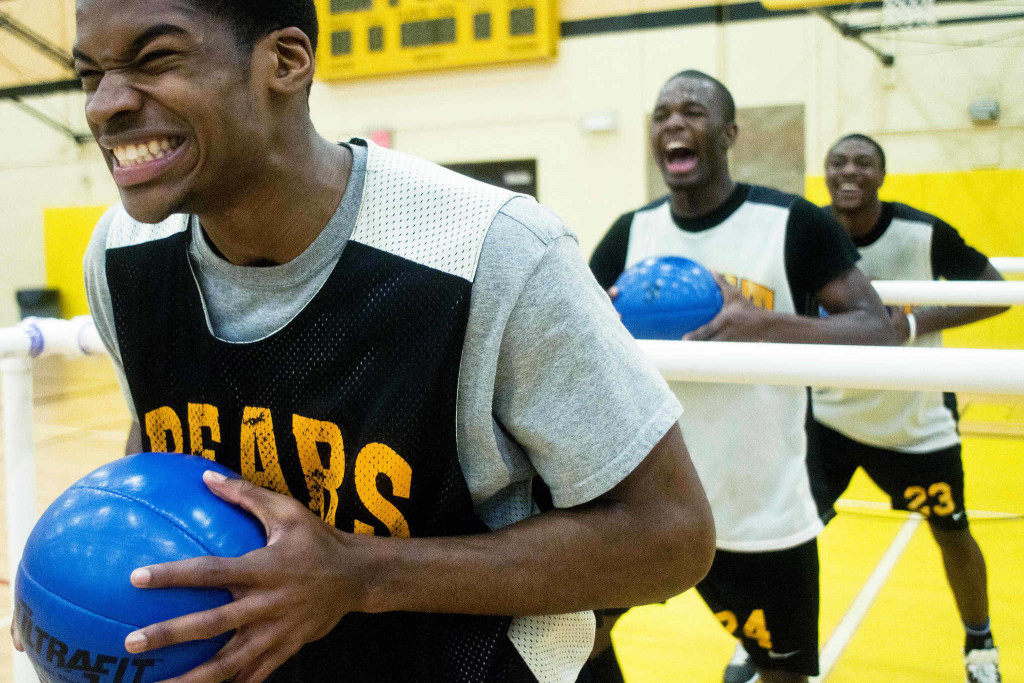
Chris Capko contributed to this portion of the article.
Many places around the country have begun school, and the basketball pre-season is in full effect. The offseason in basketball takes place from the time the season ends and runs through the summer. To me, this is the preseason. The time of the year, where playing time (to an extent) is being competed for, and basketball coaches are all starting to implement their style of play. Let’s discuss some important topics for which to think about this time of the year.
For college basketball programs, coaches are only allowed to spend two hours on court instruction with their kids. They are allowed to spend six hours with their strength coach or without a basketball.
The time with your basketball team during this part of the year is precious because it directly leads to the start of full-time practice. To me, conditioning is imperative. Your player’s bodies need to be in phenomenal shape. First, they need to be in shape to avoid minor injuries that can last an entire year. The hamstrings, groins, and back injuries can be sustained at the start of practice because the player’s body is not ready for the workload.
Conditioning
How are you conditioning your team? Are you conditioning their minds? I am not opposed to running the mile one day a week. I know it is not basketball-specific, but it challenges you mentally, which is just important. I also believe in suicides and some type of test to see where your team is. Whether it be 15, 20, or even 25 suicides. There needs to be some basketball components such as playing pick up or agility basketball drills that simulate what you will be doing in a game.
I believe you should condition 4-5 times a week, on top of the individual instruction you are allowed with your basketball team. During the season, you play twice a week and practice every other day except a mandatory one day off. I believe in building your team’s body for the grind. At this early stage in the season, I think that two days off can set you back. I also believe that the momentum your team built in the weight room should be continued in this period. Your players will not have the same focus in the weight room during the season and will probably lose some of the gains they made.
Floor Time
How do you attack your time on the floor? Programs cannot get on the floor as an entire team until the middle of September. Are you doing groups at two days for an hour each? Three days a week at forty minutes each? Or Four days a week at thirty minutes each? I personally like to keep them busy and do something with them as many days as possible. I hate the idea of thinking my basketball players possibly might not be doing something every day. The more days I can work with them, the better.
Basketball Player Development
We have little programs that we do within our program to entice players to get in the gym. We have each player involved in a shooting club, where they must make 500 shots a week with a manager. The manager keeps a total of all of their shots, and the player with the best percentage will get a small reward. We just want to do something to keep it competitive.
Attacking the Preseason in Basketball Conclusion
This is a very crucial part of the basketball season and must be treated as such. With conditioning, weight lifting, and individual instruction, you set the tone for what is right around the corner. Bring the right focus, state your goals with each player, and hold them accountable to improve, and you will reap all of the rewards.
The Language of Your Basketball Program
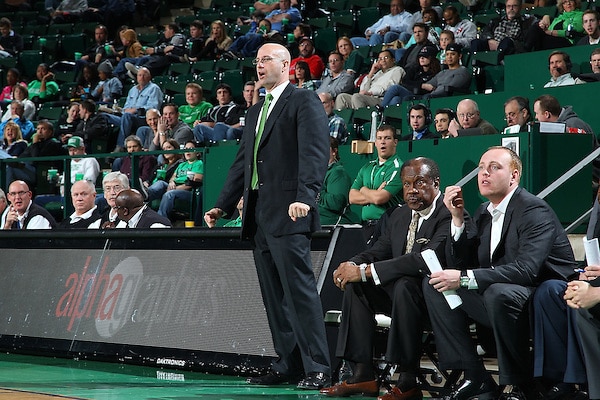
Bart Lundy contributed to this portion of the article.
Let’s “Green,” the ball screen! Guard him as a “Rondo”! “On the line, up the line!” “Be white line committed!” “Flip the screen!” He can shoot and drive, guard him as a “Wade”!
These are phrases that you may or may not understand, but they are often said in our basketball program. These are a few examples, and we could come up with hundreds more. The language of your basketball program is unique and ever-changing. But do you document it? Do you put it on paper for your young players and your new staff members to learn?
As an assistant basketball coach, are you speaking the same language as the head coach? Having your own language is crucial, putting your stamp on the mentality of your players and staff. Language is a powerful tool in establishing your basketball culture, defining your core beliefs, and making sure staff and players are all on the same page.
As a head basketball coach at the age of 25, I never got the luxury of seeing how a lot of other coaches ran their programs. After 11 years as a head coach, I was fortunate to have the opportunity to work for Buzz Williams at Marquette. One of the aspects of organizing the program that was important at Marquette (and one that I had never given much thought to) was the language used in the program.
We are not talking about four-letter words but rather the language we used to communicate our basketball knowledge and even the emotional aspects of the program. It was crucial at Marquette, and we have followed the same route here at North Texas to document the language of your basketball program that we use. At Marquette, we called it the “Words We Use.” This seems like a simple concept, but it profoundly impacted how I look at organization within the program and made me pay attention to how we communicated to our players and each other.
Minimizing Confusion
Young players are quickly overwhelmed with the physical and time demands placed upon them after leaving high school to become a collegiate basketball player. Learning the language quickly is key for new players in your program to become successful and make an early impact in their careers. As a veteran basketball player in your program, they will know exactly what you are talking about in all situations and will perpetuate the language as it becomes part of who they are as a player.
This is not the case when they are new, though. As basketball coaches, we assume that the players can understand what we are saying. The truth is that many young players are getting only part of the message and sometimes none of the message. In many cases, this is due to their lack of understanding of your unique terminology and language of your basketball program.
Have you ever had a player come to you and tell you different coaches are teaching him different things? Having a staff that can communicate the same message with the same words allows for seamless execution on the floor. Basketball coaches change jobs and have different playing and coaching experiences that they draw from in their past.
Along with these different experiences come different phrases, terms, and verbiage used. Getting a player to perform a skill as you believe is necessary to win becomes difficult when it is being taught with different words used. It is just as important to teach your coaches to use the same basketball terms as it is for your players to understand them.
Developing YOUR Basketball Culture
Establishing a distinct culture in basketball is a difficult process, and something that doesn’t happen overnight. Sometimes the words we use are technical, and sometimes they bring an emotional response, and sometimes the terms hit both these areas. “On the line, Up the line” is a technical defensive term. Something everyone in our basketball program should understand without question and all our coaches should use. We go at “Batman” pace is less technical and more emotional.
It does not mean that we fly around with a cape. It means we go as hard as we can possibly go on every play. “Paint touches” is a crucial term at Marquette and for us here at North Texas. This term is both technical and emotional. Technically it means, get the ball inside before we shoot. Emotionally, it tells our players to be aggressive and drive the ball to make plays for their teammates. So when we say we need “Paint Touches,” it hits the players on multiple levels, and they all understand. Your culture reflects your core beliefs, and so should the language you use in the program.
Everyone on the Same Page
How do you get everyone speaking the same language? We have made it a priority to document our nomenclature. Just like we have a playbook, we have a dictionary of the “Words We Use.” It is given to our basketball players and our coaches, and we study it. It is also important that it is emphasized to the staff that we all use the same terms and phrases. It was important to Coach Williams at Marquette, and it is important for Coach Benford here at North Texas that we all use the same words.
Using the same language in our basketball program was articulated to the staff in our staff meetings and our practice planning. There was never any question on the “Words We Use.” If you want your culture to be yours, you have to have your own language.
Relationships with Your Players in Basketball
Kyle Getter contributed to this portion of the article.
The relationship between basketball coaches and players needs to be authentic and transformational rather than transactional. The relationship needs to be built on motives to help make players a better version of themselves, rather than “using” the players in an attempt to win games.
As a former basketball player, I always appreciated when my coaches worked to get to know me as a person and developed a relationship with me beyond basketball.
Here are four ways to help cultivate strong relationships with your players in basketball:
On and Off the Court Relationships
First, spend time with your basketball players, on and off the court. I heard one time that the best way to spell love is ‘‘t-i-m-e.” Our players must know their coaches care about them beyond their performance on the court. As the old saying goes, “Players don’t care about how much you know until they know how much you care.”
If you care, they will care! When players are in a basketball program with people who care about them, they contribute a lot more than they otherwise would. Treat each player as an individual. Get to know the names of their family and anyone else who is important in their lives. Familiarize yourself with each player’s support system.
Communicate About More than Just Basketball
Secondly, communicate about things other than basketball. Always be honest in your communication. Define very early on what you expect from them. You cannot invest too much time communicating with a player. Don’t gossip with players. Stop any player who starts telling you what is wrong with something or someone in your organization!
Utilize every available opportunity to support and send our message! You must recognize there is a big difference between just talking and communicating. Excellent communication doesn’t guarantee the influence of positive attitudes, but poor communication could produce negativity. As a reminder, the quality of your players’ attitudes will be directly proportional to the quality of the atmosphere you create for them.
How is the Player Feeling?
Additionally, always be aware of the players’ feelings. Be firm in correcting, but don’t be degrading! Realize improvement is about 30% physical and 70% emotional, so try to remain positive, especially when communicating with younger basketball players! I believe it’s a good policy to turn mistakes made by players into coaching opportunities rather than causes for punishment.
Players need recognition and praise. When giving praise, don’t contaminate your reward system by rewarding those who don’t deserve it. We will lose credibility. Very little value comes from the belief that players will respond better by treating them progressively worse. They must believe we have confidence in them.
Set High Standards
Finally, set high standards for your players. Help them raise their level of expectation, and then hold them accountable to those standards! Players won’t always do it by themselves. Your message should be loud, clear, and positive! Players must get better daily in all areas.
This goes beyond basketball. Hold them accountable and challenge them to grow academically, spiritually, and socially.
Relationships with Your Players in Basketball Conclusion
Cultivating strong relationships with your players can help take your program to new levels. Often, what separates “good” from “great” is unity and confidence. Communication and listening builds commitment and trust. As basketball coaches, we must not lose sight of the big picture.
We must intentionally continue to work towards the development of players beyond the court. A critical method to accomplish this is through relationship building.
I would love to hear any of your thoughts, ideas, or comments on cultivating relationships with your players in basketball. Sharing our experiences may not be able to help in current situations, but it never hurts to learn ways to grow in the future. Please comment below!
I hope these ideas can impact you and how you relate to players both on and off the court.
The Four Laws of Learning Applied to Basketball
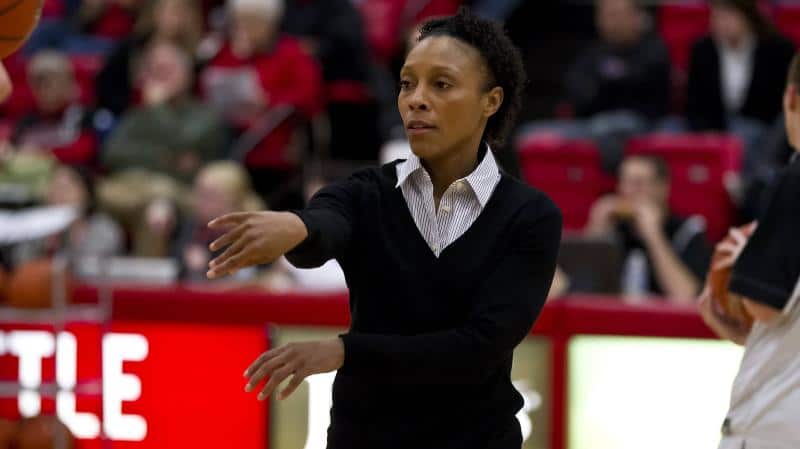
Shaquala Williams contributed to this portion of the article.
Skill Development is a never-ending commitment to filling the gap between what a basketball player is and has the potential to be. Skill development is a learning process for players, and since good basketball coaches are teachers first, understanding the most effective ways to teach is a great way to get the most out of players and a good professional development tool.
Edward Thorndike, a psychologist who specialized in the learning process and how to learn best in educational settings, developed the “Laws of Learning.” These laws are fundamental principles of the learning process, proven to make learning more effective. Four of the “Laws of Learning” have great parallels to basketball coaching and are highly useful for a better understanding of the most effective ways to coach players.
1. The Law of Exercise = Quality Repetition
Practice does not make perfect, but meaningful practice and repetition lead to development and improvement. Meaningful practice means basketball players have a greater focus on proper technique, acceptance of feedback, and the desire to correct any errors or weaknesses. Quality repetitions help athletes retain information longer, so skills eventually become second nature.
Focus on the quality of repetitions, not quantity
2. Law of Readiness = Engagement and Investment
Just because a basketball player is present does not mean they are engaged. Individuals learn best when they are physically and mentally prepared to learn. Engaged players find value and purpose in what they are doing, which keeps them motivated.
Engagement made me think of a video from Alabama Head Football Coach Nick Saban, who compared investing time vs. spending time. When players are engaged, they are invested in their improvement. This creates ownership, and increased ownership creates greater engagement and investment.
3. Law of Primacy = Create Good Habits the First Time
Doing something the wrong way creates bad habits. Players retain the first thing they learn more readily, so teach it right the first time. Focus on details and correct technique. Early in executing basketball drills, players should be kept at a pace that allows emphasis on technique. Increase speed as basketball skills are mastered because doing something full speed incorrectly does not develop good habits or improvement.
Detail – Master the details
Speed – Perform full speed with correct technique
Contest – Perform vs. game-like conditions
4. Law of Intensity = GS3
The Law of Intensity states higher intensity material is more likely to be retained. A clear, vivid learning experience teaches more than the same boring routine or experience. Make basketball training visually game-like by using cones, garbage cans, or chairs. Push basketball players out of their comfort zone to grow; choose goals just beyond their present abilities, and make workouts game-like.
Game Shots
Game Spots
Game Speed

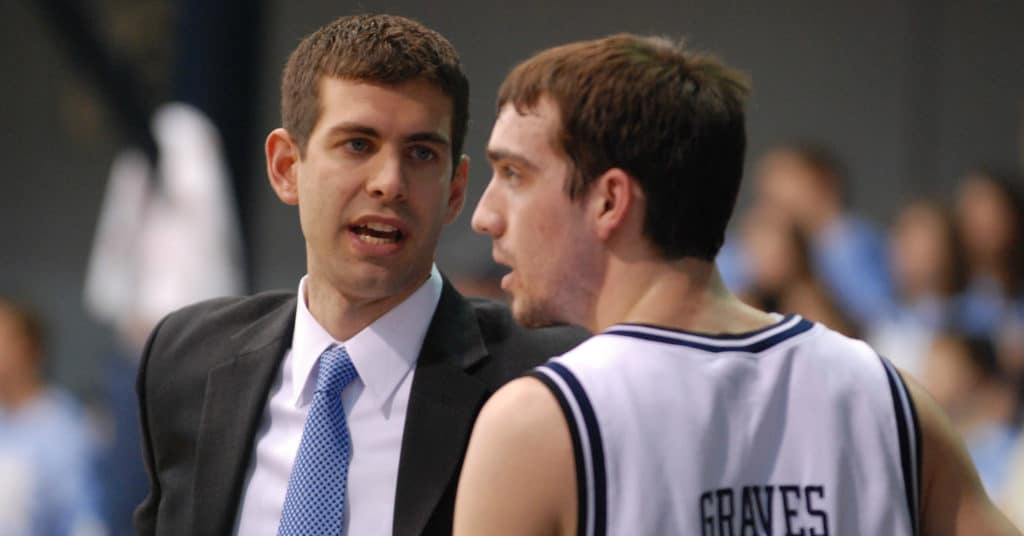



4 Responses
Great analysis but only relevant in US. Similar principles can be utilised in the rest of the world where we play to FIBA rules which have rules regarding non playing participants standing in bench area excluding either coach or assistant coach only one of whom can stand.
Great observation. Coach Sutton is a college coach so that would make sense as to why it was geared to his experiences. Thanks for helping out with the input though!
great stuff im implementing it today
I am a highschool girls basketball player, and I came upon this while looking something up regarding a rule that the ref instilled during my last game. During a 30 second timeout, the ref yelled at the bench and made the bench all stand up, in place,for each 30 second timeout. Even the managers and the jv team. The ref was very angry and spiteful towards our coach bc he is an *oppinionated* person. I think she was getting her rules mixed up. 😂 oppinions?